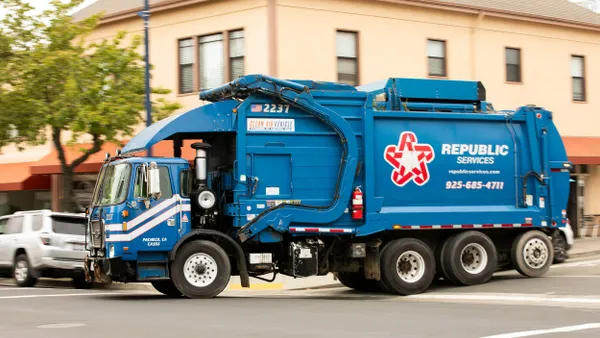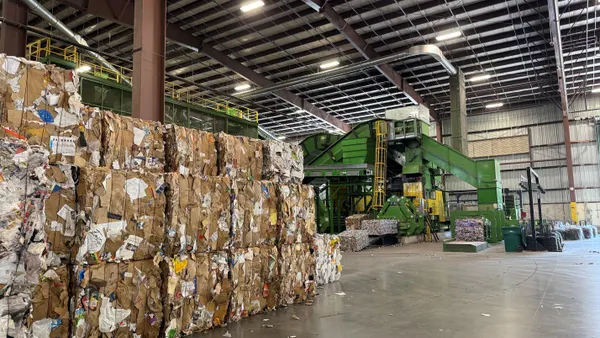Dive Brief:
- The recent switch from bins to carts for recycling collections in St. Paul, MN has proven more challenging than expected for Eureka Recycling. Missed pickup complaints have been frequent and some residents waited longer than expected to receive their carts, as reported by MPR News.
- One local council member has threatened to reduce Eureka's payments or cancel its contract if the problems aren't resolved soon. The nonprofit recycler said that switching to alley pickup exposed gaps in the city's electronic map information, which led to route disruptions. This has since been addressed with the assistance of a mapping company.
- St. Paul's Public Works Department said that as of Feb. 6, Eureka had collected 1,292 tons of material in the new system. This is a 19% increase compared to the same period in 2016.
Dive Insight:
Making a switch in collection receptacles, locations and methods often requires a transition period, though doing this at the beginning of a new five-year contract has led to extra headaches for Eureka. The company has publicly apologized and said that routes are now being collected as normal.
Educating residents about cart placement has proven to be a common municipal issue and Eureka is leaving incorrectly positioned carts behind with education tags. A recent experiment in Fayetteville, NC, which made the switch to automated collection in recent years, found that putting this messaging directly on carts was more successful than mailing it. Other municipalities have also experienced this learning curve when making the switch to automated, though as seen recently in Orange County, FL, both haulers and residents often adapt within a few months.
The higher recycling tonnage is a promising sign that this switch will be worthwhile and is an early sign of support for the prediction that new carts could increase tonnage collected by 35%. Education funding is part of a $500,000 grant from The Recycling Partnership that helped purchase the carts so more progress could be expected. All recyclables are going to Eureka's material recovery facility in Minneapolis and will be sorted using new equipment financed by a $9.9 million package from the Closed Loop Fund.











